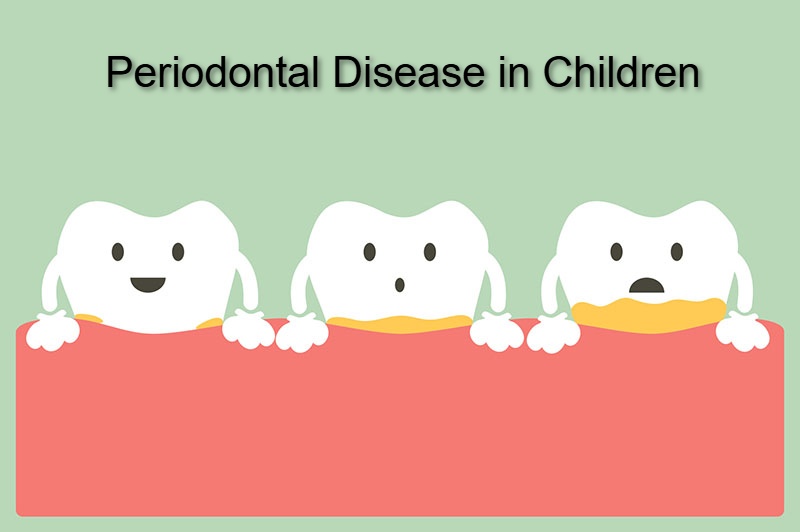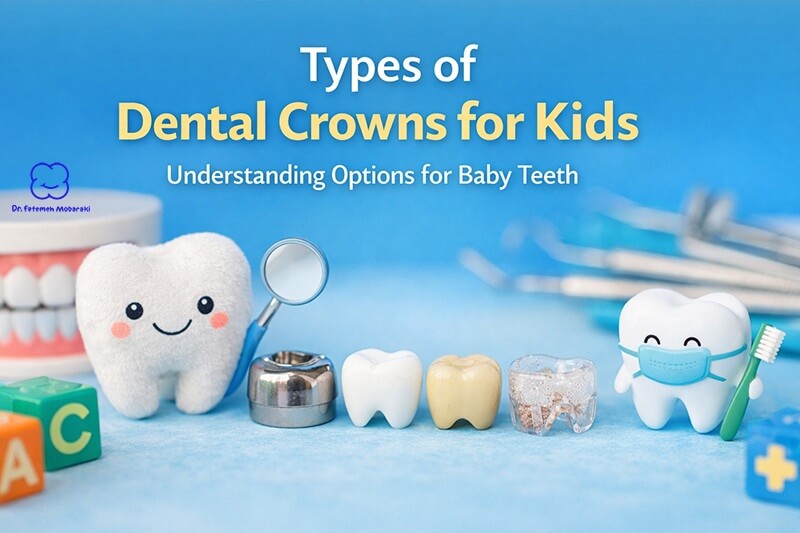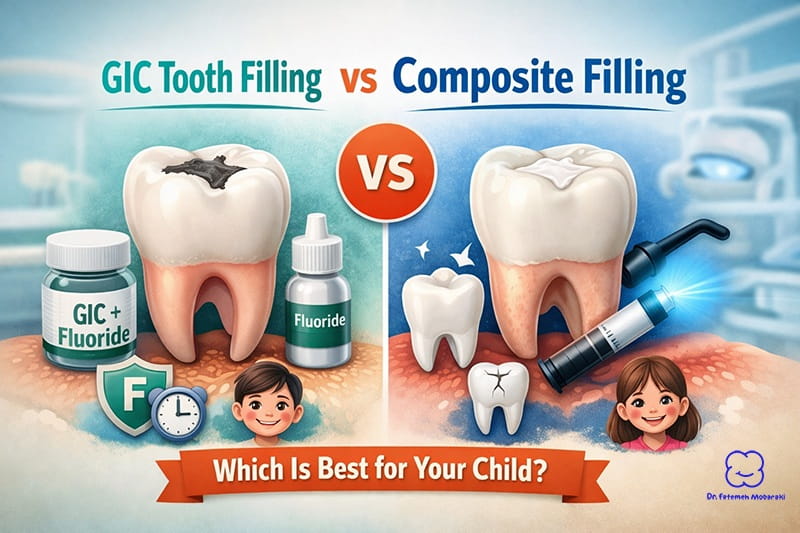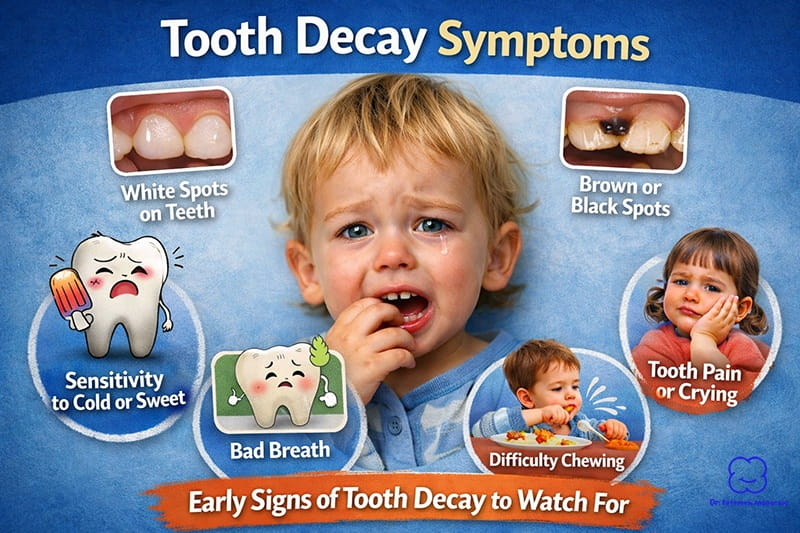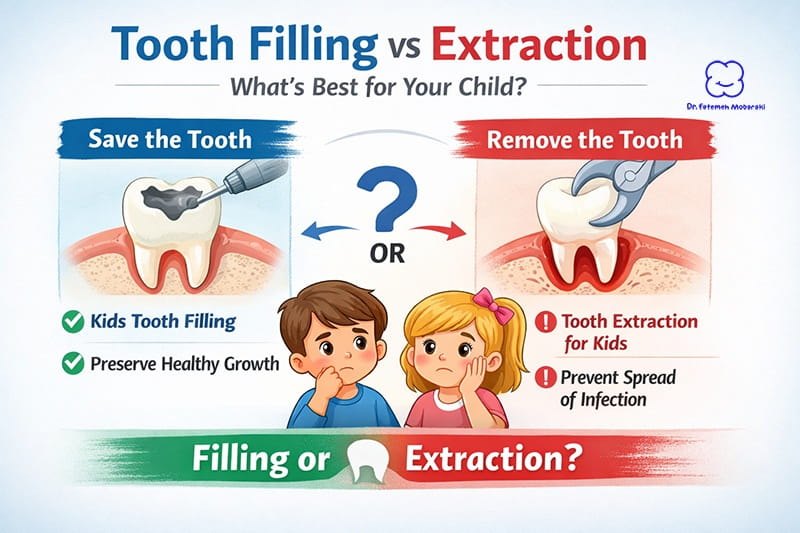Thumb sucking is a natural habit for many infants, providing comfort and security. However, if it continues past a certain age, it can lead to dental issues that may concern parents. Here at our pediatric dentist clinic in Dubai, Dr. Fatemeh Mobaraki shares insights on thumb sucking and how parents can help their child stop the habit.
Why Do Children Suck Their Thumbs?
Babies are born with a natural instinct to suck. It not only helps with feeding but also provides a sense of comfort. Many infants start thumb sucking as a self-soothing technique, often helping them fall asleep or cope with stress. It is completely normal for children under the age of four to engage in thumb sucking without any major concern.
Thumb sucking can also be a way for children to explore their world. The sucking reflex starts in the womb, and when a baby finds their thumb, it can feel soothing and familiar. The habit is often comforting during times of stress or when a child feels tired, hungry, or bored. As parents, it is important to understand why your child may turn to thumb sucking, as this can help you address the behavior effectively.
When Does Thumb Sucking Become a Problem?
While thumb sucking is common among infants and toddlers, it becomes a concern when the habit persists beyond the age of four or five, especially after the eruption of permanent teeth. Prolonged thumb sucking can lead to problems such as:
- Misalignment of the front teeth (overbite or open bite)
- Changes in the shape of the jaw
- Issues with the proper alignment of teeth
- Speech problems, such as lisping or difficulty pronouncing certain sounds
These complications can make future dental treatments more challenging, which is why it’s crucial to address the habit before it affects dental development. Early intervention can prevent the need for more intensive orthodontic treatments later in life.
Tips to Help Your Child Stop Thumb Sucking
Stopping a thumb-sucking habit requires a gentle, understanding approach. Dr. Fatemeh Mobaraki recommends the following strategies for parents:
1. Positive Reinforcement
Encouragement works wonders. Praise your child when they refrain from thumb sucking, and consider offering small rewards for continued progress. Create a sticker chart to track their success, making the process more fun and rewarding. Positive reinforcement helps children feel motivated and supported, making it easier for them to break the habit.
2. Identify Triggers
Thumb sucking is often a response to stress, boredom, or fatigue. Identifying situations where your child is more likely to suck their thumb can help you address the root cause. Offer alternative comfort measures, such as a favorite toy or a cuddle, during these times. For example, if your child tends to suck their thumb when they are tired, establish a calming bedtime routine that helps them relax without needing to resort to thumb sucking.
3. Keep Hands Occupied

Children tend to suck their thumbs when they are idle. Keeping their hands busy with toys, puzzles, or crafts can help distract them from the urge to suck. Encourage activities that require the use of both hands, such as drawing, playing with building blocks, or molding clay. These activities not only keep their hands occupied but also stimulate their creativity and development.
4. Use Gentle Reminders
Sometimes children may not be aware they are sucking their thumb. Gentle, positive reminders can help them become more mindful of their habit. Avoid scolding or punishing, as this can create anxiety and make the habit worse. Instead, use phrases like, “Remember to keep your hands out of your mouth,” in a calm and encouraging tone. You can also use visual reminders, such as wearing a colorful bandage on their thumb, to help them remember.
5. Offer Comfort in Different Ways
Thumb sucking often provides comfort. Finding alternative methods to soothe your child, such as hugs, storytime, or a favorite stuffed animal, can gradually reduce their dependency on thumb sucking. It may also help to create a special comfort routine, like reading a favorite book together or having a cuddle session before bedtime, to provide the emotional support they need.
6. Be Patient and Consistent
Breaking a habit takes time, and thumb sucking is no different. It’s important to be patient and consistent with your approach. Every child is different, and while some may stop thumb sucking quickly, others may take longer. Celebrate small victories along the way, and remember that setbacks are normal. Consistency is key, and over time, your child will learn new ways to self-soothe without relying on thumb sucking.
When to Seek Professional Help
If your child is struggling to stop thumb sucking despite your best efforts, consider consulting with a pediatric dentist like Dr. Fatemeh Mobaraki. At our clinic in Dubai, we offer personalized solutions to help children break the habit in a gentle and supportive manner. Special devices, such as thumb guards, or dental consultations might be recommended in certain cases.
According to Dr. Fatemeh Mobaraki, “Thumb sucking is a common habit among young children, but it’s important to address it early if it continues beyond the toddler years to prevent any potential dental issues. With the right approach and support, parents can help their children break the habit and protect their oral health.”
Professional help can also include counseling if the thumb-sucking habit is linked to emotional distress. Addressing underlying anxiety or stress can make it easier for children to let go of the habit. Our team works closely with parents to provide a comprehensive approach that supports both the child’s dental health and emotional well-being.
Thumb Sucking and Your Child’s Dental Health
Untreated prolonged thumb sucking can lead to more complex dental issues down the road. Addressing the habit early ensures your child has the best possible start for a healthy smile. Dr. Fatemeh Mobaraki is experienced in guiding families through the journey of breaking thumb-sucking habits, helping ensure proper oral health for your child.
Prolonged thumb sucking can cause changes in the roof of the mouth and affect how teeth grow and align. This can lead to the need for braces or other orthodontic treatments. By addressing thumb sucking early, parents can help prevent these potential issues and set their children up for a healthier future. Preventative care is always the best approach, and our clinic is here to support you every step of the way.
Schedule a Consultation Today
f you’re concerned about your child’s thumb-sucking habit and its impact on their dental health, don’t hesitate to reach out to us at our pediatric dentist clinic. Dr. Fatemeh Mobaraki and our friendly team are here to provide the guidance and support you need to help your child grow up with a beautiful, healthy smile.
Contact us today to schedule an appointment! We are committed to helping your child achieve optimal dental health and break the thumb-sucking habit in a positive and effective manner. Our clinic provides a welcoming environment where both parents and children feel comfortable and supported. Let us partner with you to ensure your child’s smile remains bright and healthy for years to come.


